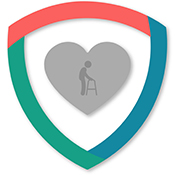Understanding dementia and all its complexities cannot be done in one article, or neither by reading an entire book. Hence is why there are countless people who have dedicated their careers to helping us better understand this debilitating condition. There are many books out there, and one of the best, and most easy to read books I have found is called “Experiencing Dementia” by H. Norman Wright. It is a short, easy to read book and very reasonably priced on Amazon (less than $5.00)
The author has been diagnosed with early stages of dementia after years of being a caregiver for a handicapped son and eventually, his own wife. After doing his own research, both academically and experientially, he skillfully describes the condition in an easy to understand manner.
Dementia is not a disease in itself; but rather a group of symptoms that result from other sources, or diseases. It is basically an ‘umbrella term’ used to describe the many symptoms that interfere with normal life functioning. There are several types of dementia, with Alzheimer’s accounting for somewhere between 60-80% of all cases (over 5 million cases). The other most common types of dementia are:
- Vascular Dementia
- small silent strokes
- Dementia with Lewy Bodies
- Abnormal clumps of protein form in the brain causing never cells to degenerate
- Frontotemporal Dementia
- The area of the brain responsible for behavior is gradually eroded
- Normal Pressure Hydrocephalus
- Used to be called ‘Water on the Brain’ because of buildup of fluid on the brain
- Mild Cognitive Impairment (MCI)
- Change of IQ functioning
What our loved ones with dementia are facing:
- Memories and abilities that they have worked their entire life to obtain, are being slowly stolen from them
- Great emotional pain: for both Receivers of Care and Givers of Care
- Loss of self: one of the greatest losses a person can face
- Emotional issues and personality changes as a result of the part of the brain responsible for emotions and memory is affected (the amygdala)
- Sleeplessness due to the brain stem being affected
- Loss of memory is extremely frightening; our memories give us life!
Dementia is a terrible thief. It robs people of their memories, abilities, personalities, coping abilities, sleep, and eventually physical functions. How couldn’t this change a person? It is so out of their control, we must remember that. It helps me to put myself in the place of a dementia patient, and try to imagine how I would feel. Yes, this is a scary exercise. But if it’s scary just thinking about it, imagine how it is to live with it! Bone chilling to consider.
One fact is certain. Regular, consistent, positive visits from family and friends is the biggest source of relief for our loved ones, even if they don’t remember it later. Imagine how frightened they must feel. Spreading out visits will help with that. Using the Community module in the Genus™ app, you can look back over past data and see how you and your care circle are doing with providing consistent contact with your loved one. You can correlate that to other date you might be tracking, such as physical mobility and/or mood. Then using the calendar function, you can easily plan visits so that they don’t overlap too much and are spread out to best benefit the patient.
Using the Moments module, you can take pictures of special people, places and events that will help stimulate positive conversation during your visits. Using your smart phone during a visit, you can share the photos with your loved one, or just listen to some music. We have also taken pictures of bible verses images and other inspirational sayings that we use when visiting my mom. She is always grateful for the wisdom shared and seeing it in writing is different than hearing it from a family member. More authoritative and less “bossy”.
Yes, dementia is a thief. But armed with information and tools, we can minimize the damage and provide the best love and support we can for our loved ones.
 If your life is wrapped up in the challenges of caring for a loved one with Alzheimer’s, you can’t help but think, “Is this going to be me one day? Am I at risk for this disease?” It can be pretty darn scary.
If your life is wrapped up in the challenges of caring for a loved one with Alzheimer’s, you can’t help but think, “Is this going to be me one day? Am I at risk for this disease?” It can be pretty darn scary. Most of us are never trained to care, it’s a skill we learn along the way. In
Most of us are never trained to care, it’s a skill we learn along the way. In  What is normal, healthy aging, and what do we know about it?
What is normal, healthy aging, and what do we know about it?